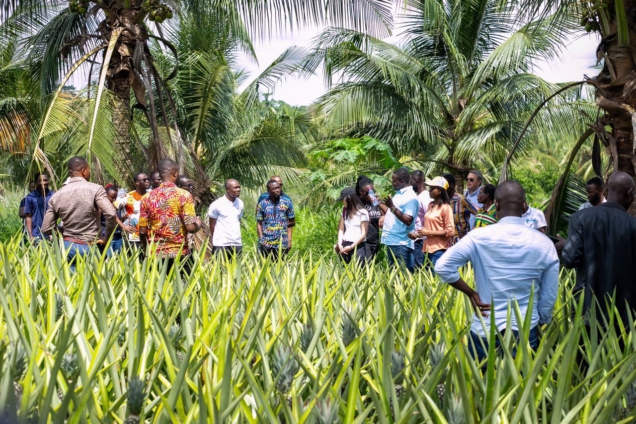The International Trade Centre's (ITC) Netherlands Trust Fund V Tech project is seeking to transform Ghana’s horticultural sector through digitalization to rake in more income for local farmers and consequently shore up the country’s economy.
Through its Ghana-based agricultural technology companies, the centre is providing digital solutions to be optimised in agriculture.
Associate Programme Officer at ITC, Milou van Bruggen believes the agritech space in Ghana, and by extension Africa has so much potential.
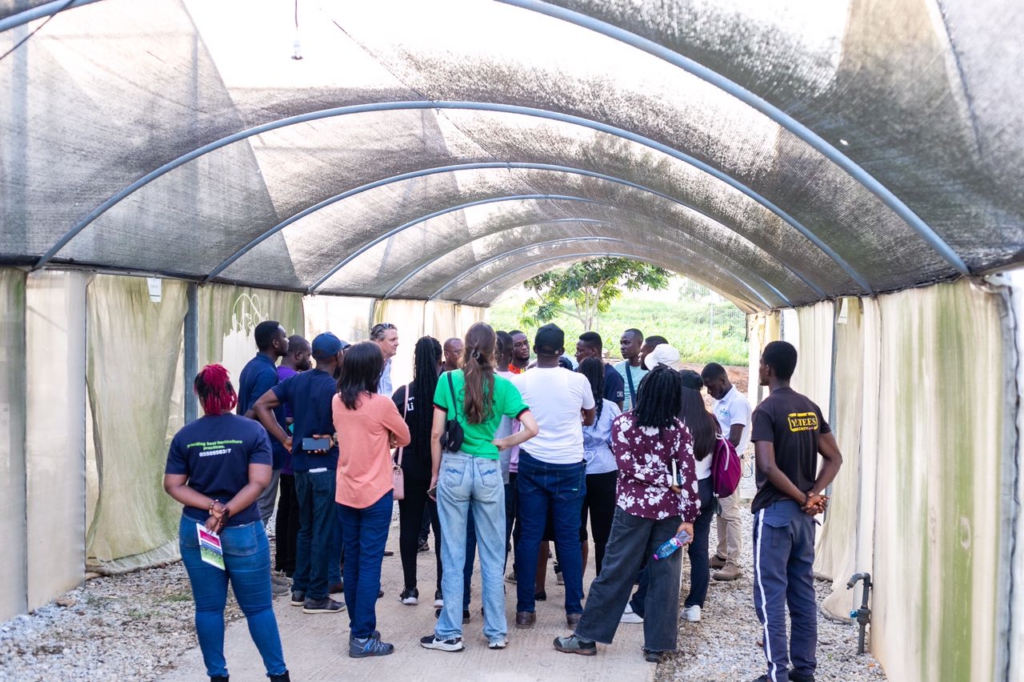
“Some tech companies are working on solutions for agribusinesses already but there is a lot more to be done. Digitalising this sector will increase efficiency and yields which leads to more income and improved livelihoods,” she said.
Ghana’s agricultural sector is yet to fully wane itself from manual and conventional means of workmanship. A number of players along the agricultural value chain, particularly in the horticultural space, are yet to completely and adequately reap benefits from digitalization of the sector.
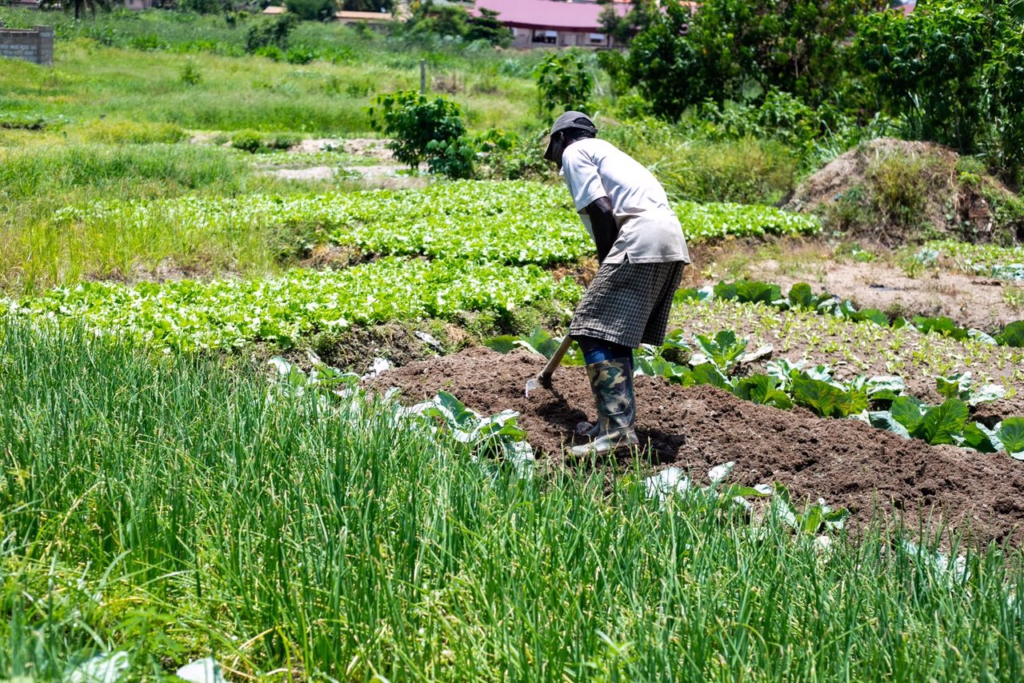
From labourers working under the parching sun on the fields through to the personnel at agro-processing and manufacturing companies, a majority of activities including ploughing and data collection are run manually.
In bridging the modern technological needs in the sector, 14 agricultural-based technology companies in Ghana paid a three-day working visit various horticultural farming communities and factories located in the Ashanti region.
The participating companies are WamiAgro, Sustainable Energies Technologies, AkoFresh, GrowForMe, SabonSake, Esoko, AgroInnova, and Farmerline.
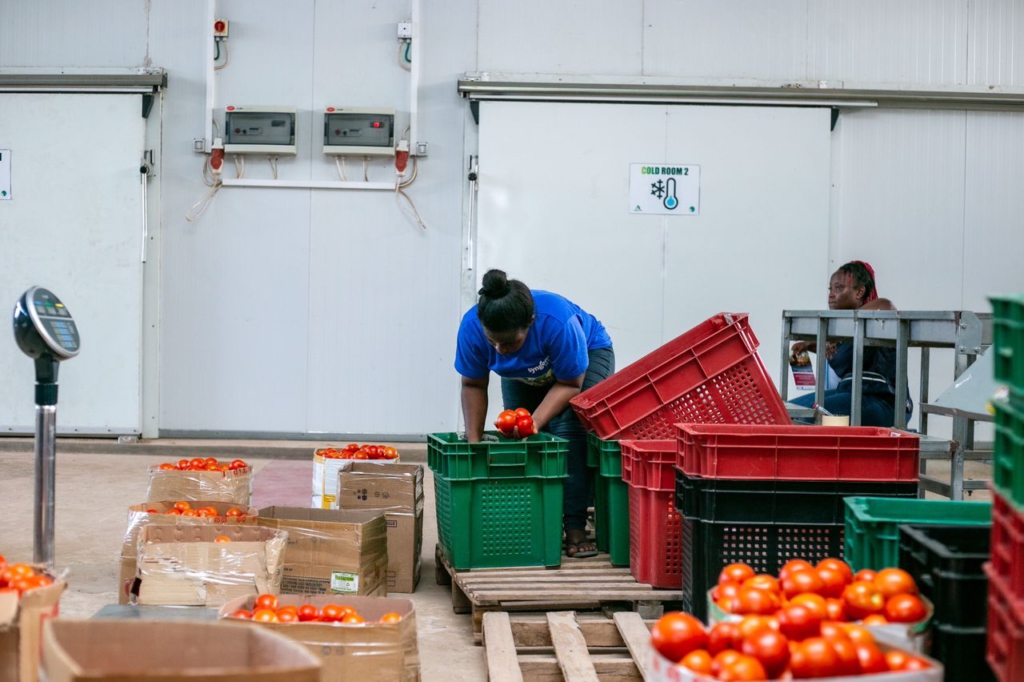
Others include Think!Data Services, Motito, Talentbox, RavenIT, and BigData.
The three-day tour was in collaboration with the Dutch Embassy, East-West Seeds, and Holland Greentech.
Attracting youth to agriculture
Agriculture as the backbone of Ghana’s economy and the major contributor to the country’s gross domestic product is dominated by the aged generation.
Non-modernization of the sector shies away many Ghanaian youth, owing partly to the non-inclusion of technology-based curriculum in agriculture education.
The team dialogued with leadership of the Kwadaso Agric College in the Ashanti region on ways to complement the teaching of agriculture with IT to pique the interest of the youth.
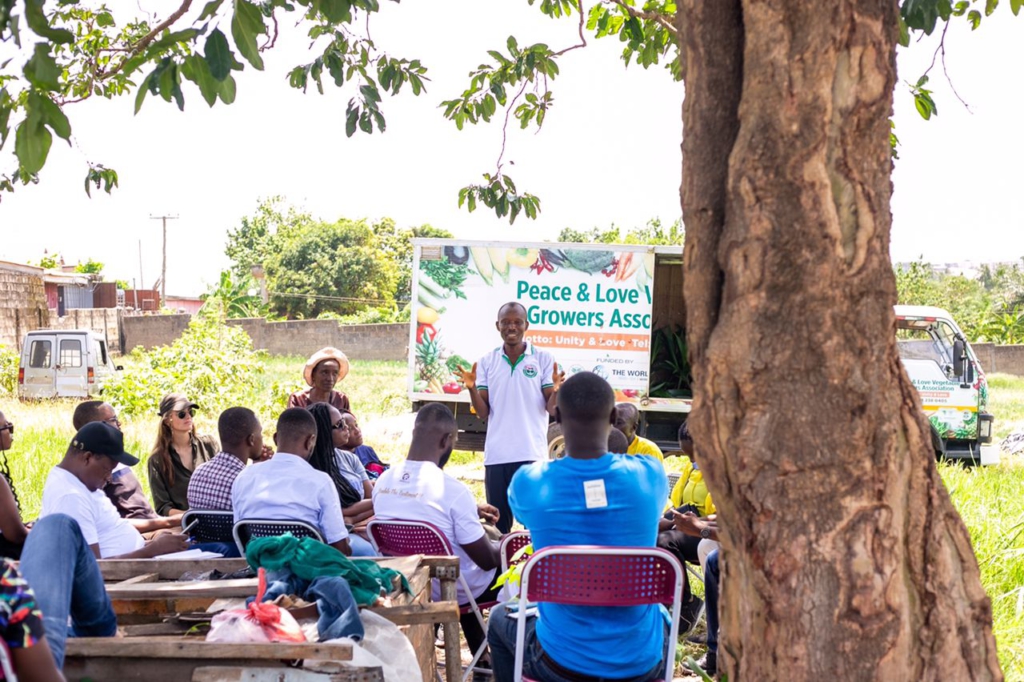
“The trip would ideally also bring more youth into agriculture. If we bring more tech into the sector, it will bring more youth into the sector. And the youth can train farmers who are not familiar with IT,” Milou van Bruggen said.
Vice Principal of the college, Ishak Shaibu admits adoption of technology-based agriculture disciplines attracts more youth into the space.
“A lot of the youth are interested in technology. We’ve started discussions to kick start the signing of MoUs for our students to be absorbed into internship programs at these start-ups. It would present an opportunity for them to gain hands-on skills in the field and also bring about creativity,” he said.
Geo-traceability
Food safety coupled with growing demand for healthy and quality products has necessitated the traceability of food products on the global front.
But the policy is not synonymous with Ghana’s agricultural value chain, especially farm growers.
In the Boamang town of the Afigya Kwabre district of the Ashanti region, pineapple farmers lack logistics to advance their farming activities and data to a technological platform.
Hanson Amofa, who owns 2.5-acre pineapple plantation, bemoans the lack of farm implements to ease burden.
“Acquisition of land and financial assistance are our problems. We have no technology to help with what we do here,” he said.
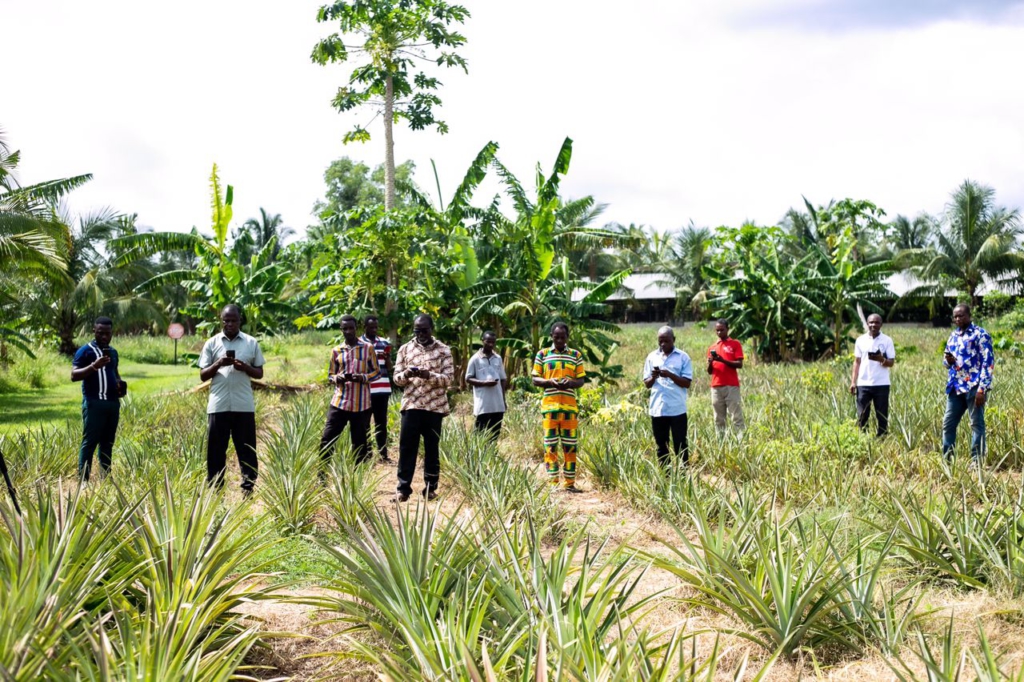
Henry Baffour of Big Data Ghana Limited, an Agritech company, explained that geo-traceability data attracts investors and facilitate the export of products.
“They have to map the farms and put on data platform where any of these stakeholders and investors can go to the platform to know the location, average size of these farms, and yield estimations. It would help the investor know how much to invest in the farms. We are interested in building a data platform with details of these to prepare the farmers for exporting their produce,” he said.
A similar approach can be employed in the Agro-processing industries.
Land security and post-harvest losses
The changing climate bears its teeth on farmers, striking farmlands with dire environmental impacts including drought.
Ginger farmers in the Nkawie district are troubled with leaving previously cultivated lands to settle on virgin soil to replant ginger.
A situation they describe as cumbersome and anticipate an immediate solution.
“We don’t know why it’s like this. But this is real concern we want addressed. Because most of us are traveling farther to adjoining community to access new lands for ginger planting,” a farmer said.
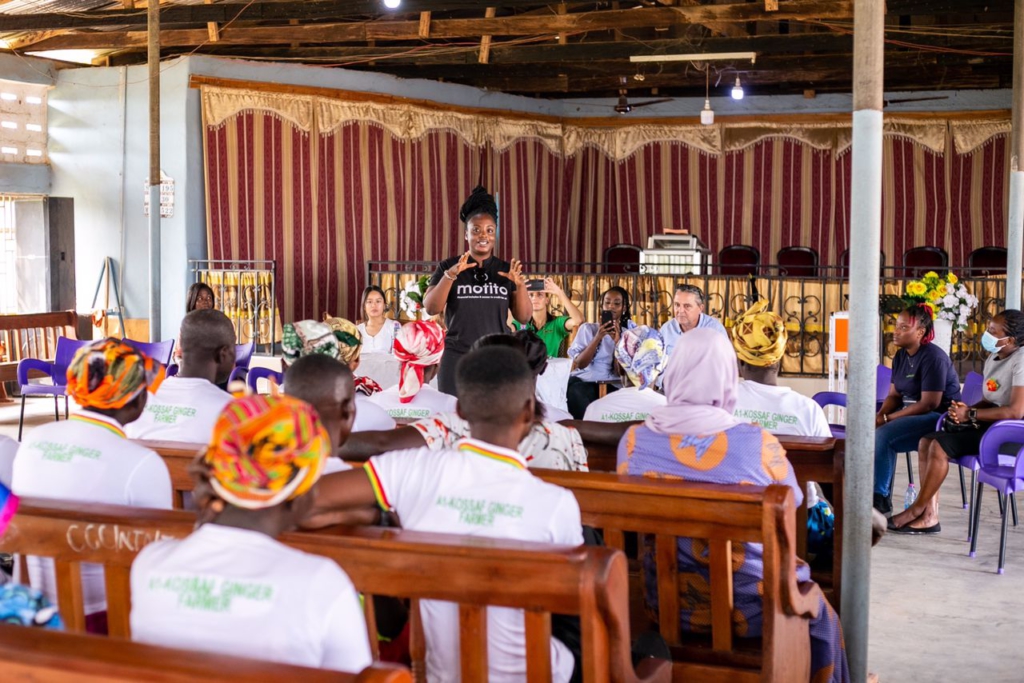
Chief Executive Officer of Sabon Sake, Audrey S.Darkoh proffers a regenerative, organic and eco-friendly type of farming.
“Convention farming techniques need to be replaced with regenerative type of farming. Farmers must refrain from harsh chemical inputs for higher yields to the use of soil boosters like the farm waste they find lying around that could go back into the soil as carbon to build the soil capital,” she said.
The team also paid visits to the Akomadan Greenhouse village, peace and love vegetable farmers association where the latter is challenged with marketability.
Due to reduced access to market and the lack of proper storage facilities, many perishable farm produce like vegetables tend to rot away after farmers inject efforts to cultivate and harvest their farms.
Post-harvest losses continue to hamper activities and affect the profit margins of farmers.
Chief Executive of AkoFresh, Mathias Yabe is proposing the adoption of a renewable cold storage facility.
“Farm produce are not transported on time to various market centres due to poor road network. With this cold storage facility, it can help preserve products like tomatoes and others for a period of 21 days. It increases the shelf life of the produce,” he said.
Milou van Bruggen says the visit is a stepping stone to materialise early engagements to digitalize the agriculture sector.
“We now have to follow-up on these conversations between the tech companies and agribusiness stakeholders. The tech companies could propose ways to integrate their solutions and adapt their existing services with knowledge from the trip” she said.
Latest Stories
-
The Spirit of Hiplife lives as Ghana’s beat of identity and influence
8 minutes -
Queen Titiaka joins President Mahama, Ministry of Environment, to launch “One Child, One Tree” initiative on World Environment Day
11 minutes -
Brighton boss Fabian Hurzeler ‘delighted’ with Tariq Lamptey contract extention
15 minutes -
Nurses’ strike escalates, disrupting healthcare services nationwide
24 minutes -
Richmond Adu-Poku: Top 6 artistes who define Ghanaian music
27 minutes -
Beyond the Veil of Religion: Where is the Love We Were Promised?
43 minutes -
Asante Gold Bibiani donates 250 desks to Queens Girls’ SHS
57 minutes -
AUCB and Huston-Tillotson University sign MoU to promote academic and cultural exchange
1 hour -
GH₵1 Levy: Abena Osei-Asare insists the Minority aren’t against fixing of the energy sector
1 hour -
Court remands NPP sympathiser accused of assaulting JoyNews reporter
1 hour -
Abena Osei-Asare defends BoG’s performance amid economic challenges
1 hour -
Groupe Nduom marks World Environment Day with environmental advocacy initiative and donation at Presec staff cluster of schools
2 hours -
Tariq Lamptey signs one-year contract extension at Brighton
2 hours -
NPP’s 2024 defeat painful but part of global trend – Abena Osei-Asare
2 hours -
If you want to win the League, sign me’ – Vincent Atinga celebrates second GPL title
2 hours

